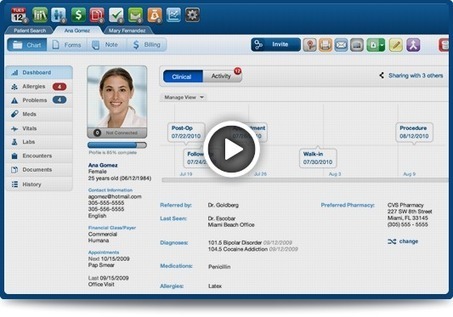Coordinated care for chronic diseases in kids is now part of the school nurse's terrain. In some states, nurses are getting access to EHR data.
Although the school nurse is a familiar figure, school-based health care is unfamiliar territory to many medical professionals, operating in a largely separate health care universe from other community-based medical services.
Now, as both schools and health care systems seek to ensure that children coping with chronic conditions such as diabetes and asthma get the comprehensive, coordinated care the students need, the schools and health systems are forming partnerships to better integrate their services. In these projects, some funded by the health law, school health professionals gain access to students' electronic health records and/or specialists and other health system resources. Such initiatives currently exist or are on the drawing board in Delaware, Miami and Beaverton, Ore., among other locations.
School nurses today do a lot more than bandage skinned knees. They administer vaccines and medications, help diabetic students monitor their blood sugar, and prepare teachers to handle a student’s seizure or asthma attack, among many other things.
A 2007 study found that 45 percent of public schools have a full-time nurse on site, while 30 percent have one who works part time. In addition to school nurses, 12.5 percent of school districts have at least one school-based health center that offers both health services and mental health or social services, according to the federal Centers for Disease Control and Prevention’s 2012 Schools Health Policies and Practices Study. School nurses often work closely with school-based health centers, referring students there as needed.



 Your new post is loading...
Your new post is loading...







